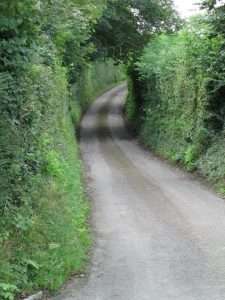Despite its depiction by the British tabloid media, what became the European Union Common Agricultural Policy was rooted in sound common sense. In 1957, Europe was still recovering from the worst war in history and the signatories to the Treaty of Rome adopted a policy that embraced the principles of food security, food quality, conservancy, vitality in rural life and maintenance of the environment. The influence of agricultural pressure groups meant that the implementation of the policy came to focus upon particular aspects of the policy, to the detriment of others.
A subsidy system, intended to ensure a regular supply of affordable food, instead encouraged massive overproduction, leading to butter mountains and wine lakes, and a scandalous waste of resources. Farmers would grow crops simply to receive the payment and might then plough them back into the ground. The Single Farm Payment system that succeeded the subsidies meant a guaranteed government income for a farm, often unlinked to the efficiency or otherwise of the farming. It, in turn, was superseded by the Basic Payment Scheme which was described in yesterday’s Financial Times as “something of a misplaced charity for large landowners.”
The EU farm payment in Britain is a predominantly flat rate system, the larger the number of hectares that one owns, the larger the payment that one receives. The farming lobby is anxious that such a regime continues after Brexit, arguing that it is necessary to sustain a reliable source of cheap food. It is not cheap food, though. The cost in the shops is only one element of the price being paid; the rest is coming from the pocket of taxpayers. If the cost of the Basic Payment is added to the retail cost, food is seen to be significantly more expensive. Nor is it cheap food if it comes at a significant social and environmental cost. Many farms have become industrial units, contributing little to either the vitality of rural life or the maintenance of the environment.
The environment and agriculture minister Michael Gove is now suggesting that things cannot continue as they are, he is suggesting that government payments will become linked to environmental preservation, that the taxpayer will be asked to underwrite only the cost of what the market might not provide. It is paradoxical that farming groups, traditionally right-wing in their political inclination, become believers in state intervention when the issue becomes one of payments to agriculture.
However things develop, and whoever forms the next government, in a post-EU context, large payments to large landowners will become politically unacceptable. Oddly, it might be after Brexit that it becomes possible to embrace the aspirations of the Treaty of Rome.
